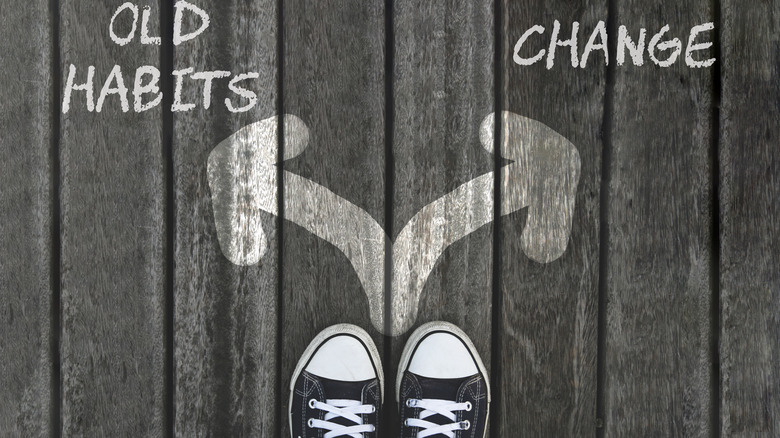Take a trip through time with us. You’ve just hopped off the school bus after a long, hard day at school. You kick your wheelie sneakers off at the front door and rush to your childhood bedroom where you toss your Jansport backpack onto your unmade bed. After looking over your shoulder to make sure none of your family members are lurking in the doorway, you pull your diary out from its secret hiding place and use a key to open the padlock that protects all your deepest secrets and hormone-driven thoughts. And right there in that room — with all your favorite celebrities offering moral support from the posters on your walls — you let your heart pour out onto the pages through your favorite pom-pom pen.
Can you remember the feeling of catharsis that came from turning emotions that would probably look like a mess of knotted-up yarn into an organized string of words on perfectly-lined paper? Why did we ever give that up? The University of Rochester Medical Center says if you struggle with feelings of stress, depression, and anxiety, it might be time to take that journal-keeping habit out of retirement.
How can journaling improve your mental health?

Being a human is tough, and when we finally sit down on the couch at the end of a busy day, turning our emotions off and zoning out can feel much more appealing than processing our emotions. But all of that avoidance can catch up with us in unexpected ways, affecting both our mental and physical health.
As it turns out, a few minutes of journaling at the end of the day might be the medicine we all need. A study published in Advances in Psychiatric Treatment found that participants who were regularly writing about their inner thoughts experienced fewer stress-related doctor visits, lowered blood pressure, better moods, and improved feelings of overall well-being. That same sentiment was reiterated in a study published in JMIR Mental Health, where 70 adults with medical conditions and anxiety found that participants who engaged in 12 weeks of gratitude journaling reported having fewer symptoms of anxiety and depression and stronger feelings of resilience.
When speaking with Healthline, New York clinical psychologist Sabrina Romanoff notes that putting your worries or negative thoughts down on paper creates some distance between you and those feelings, allowing you to see them in a more objective way. Another study found in the Journal of Personality and Social Psychology suggests that journaling can take the strength out of tough emotions, giving you the emotional space to process them.
Tips for starting a journaling practice

Journaling is a practice, and as with any other practice, the key is making it into a habit. A study published in the British Journal of General Practice found that contrary to popular belief that habit formation takes 21 days, it actually seems closer to 10 weeks. That might initially sound a bit overwhelming, but Forbes suggests that it’s hard to fail when you start with small, manageable bites. A few minutes a day can be all it takes.
Psychologist Lori L. Cangilla told Healthline that free writing can be a good place to start. Doing this involves taking a deep breath and jotting down whatever first pops into your head and letting your mind run. If you’re drawing a blank, write about that experience until something else arises. She also stresses the importance of judgment-free journaling. It is your space, so feel free to be petty, blunt, and honest in ways that you might not be otherwise.
Free writing can feel like a stressful concept for some. If you’re in that camp, there are countless apps you can download for free that offer prompts for gratitude journaling or introspection. Most importantly, be gentle with yourself, but also hold yourself accountable. Nothing productive comes from beating yourself up about a missed day, but Forbes recommends not letting it get to two or three days off and losing all the hard work you’ve put into making your habit stick.



